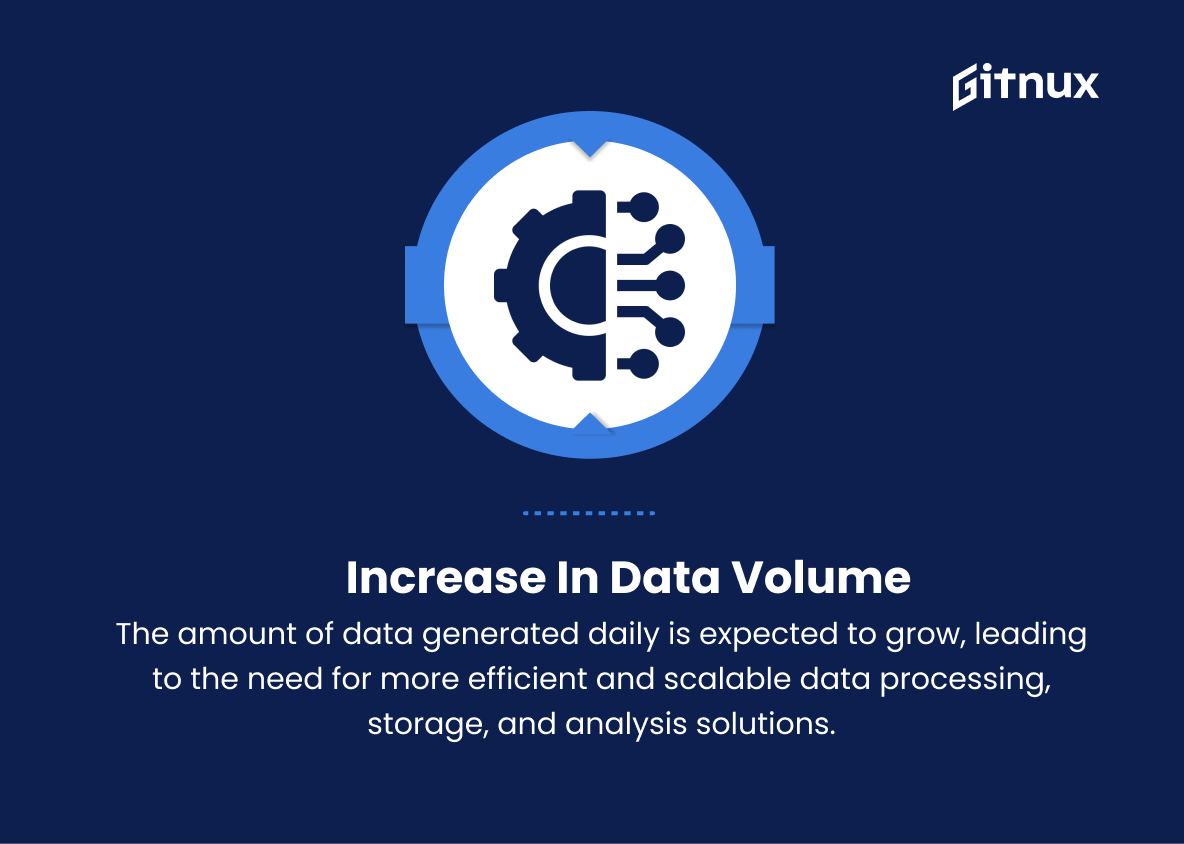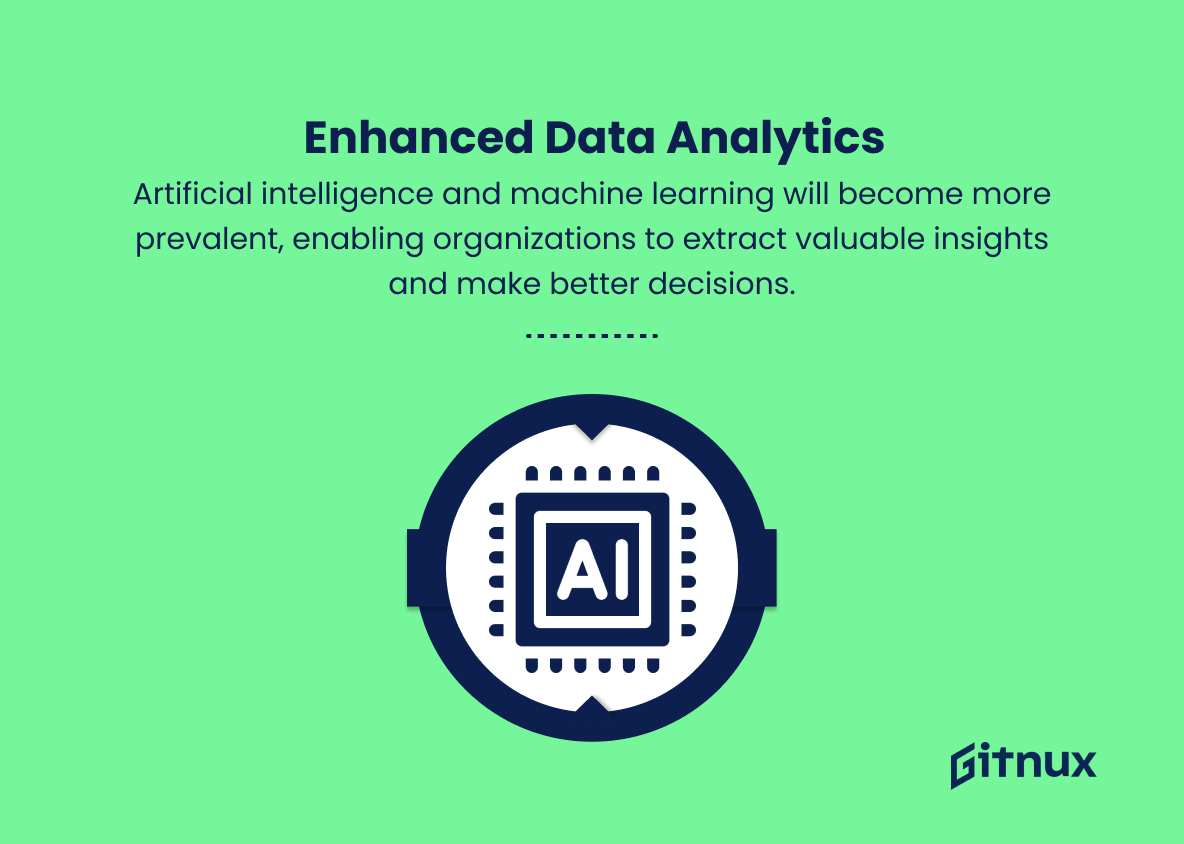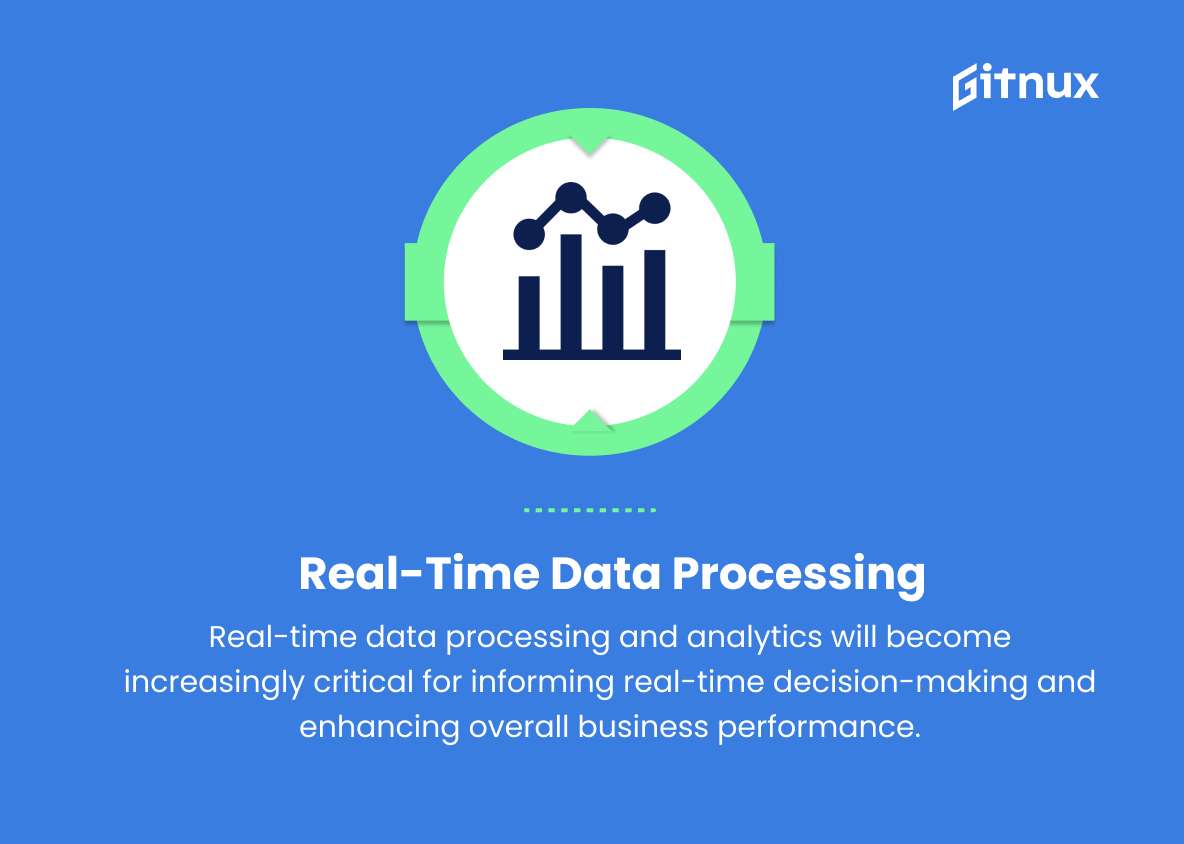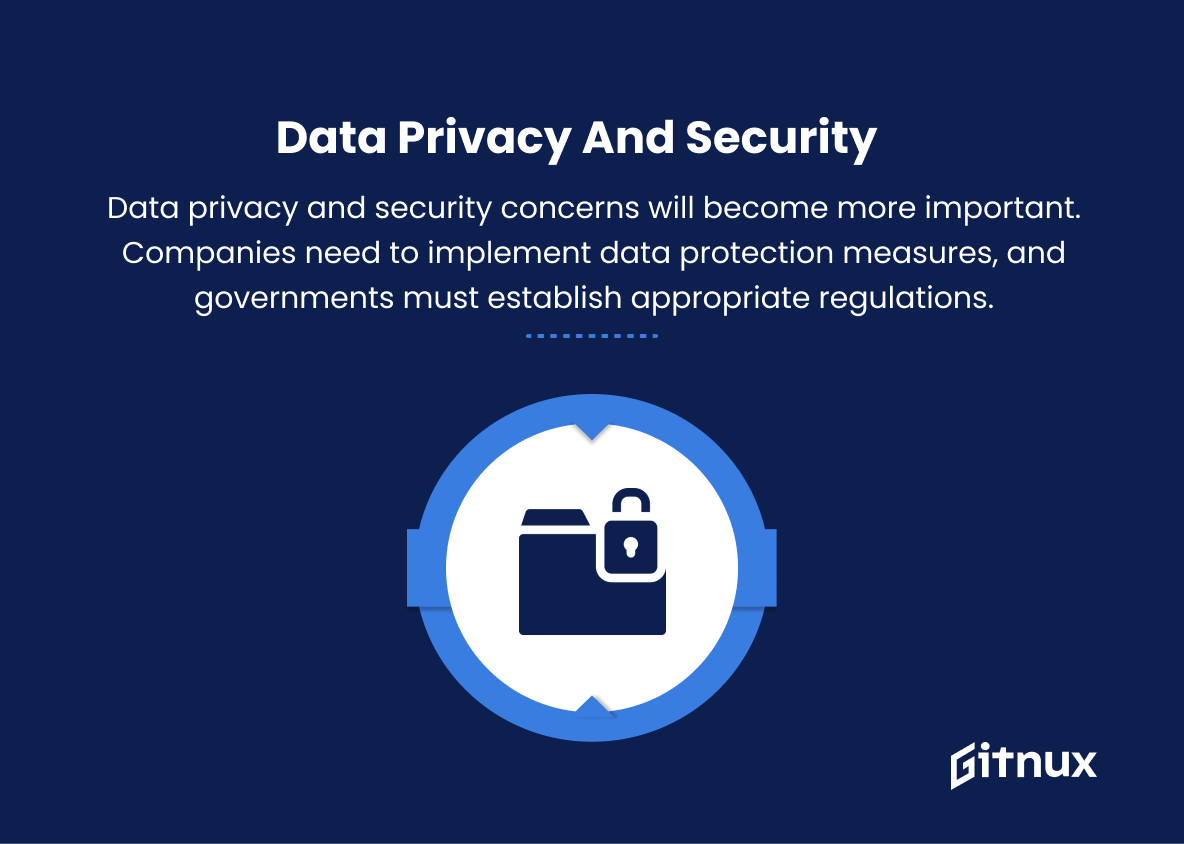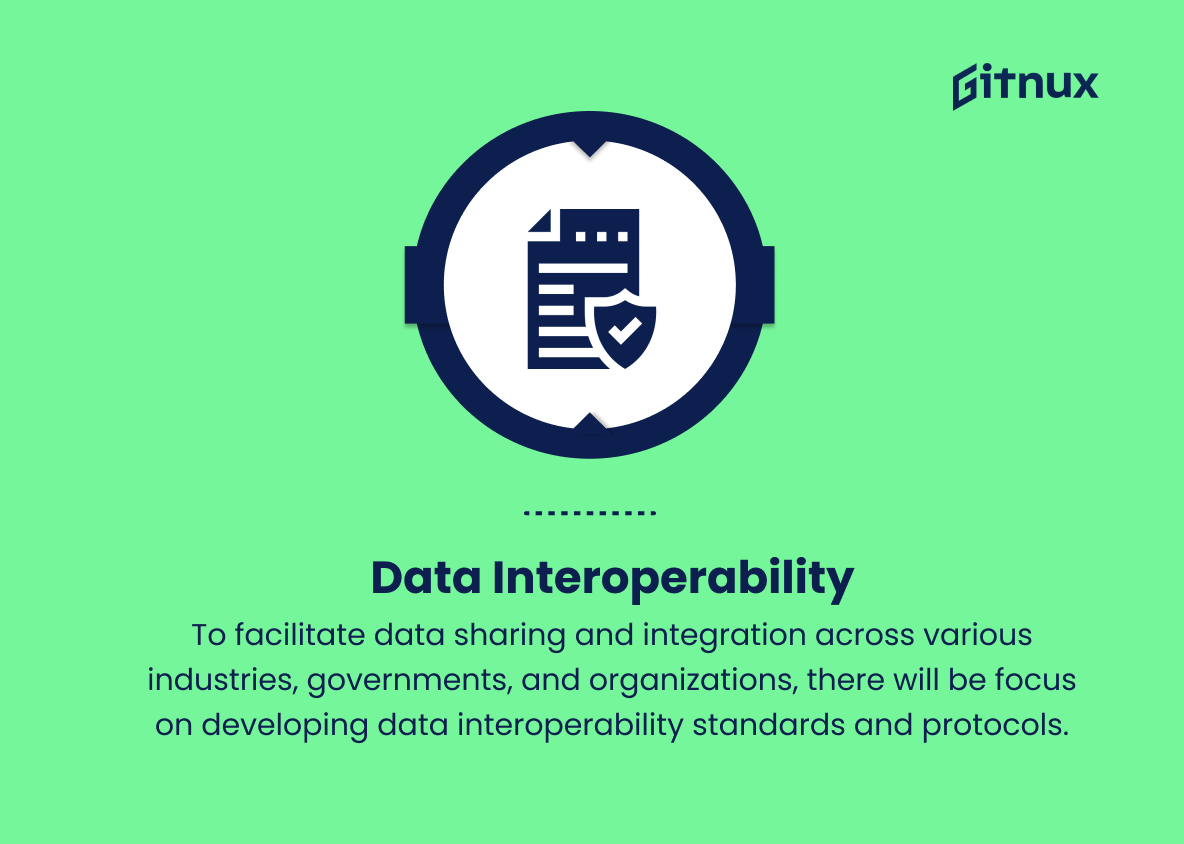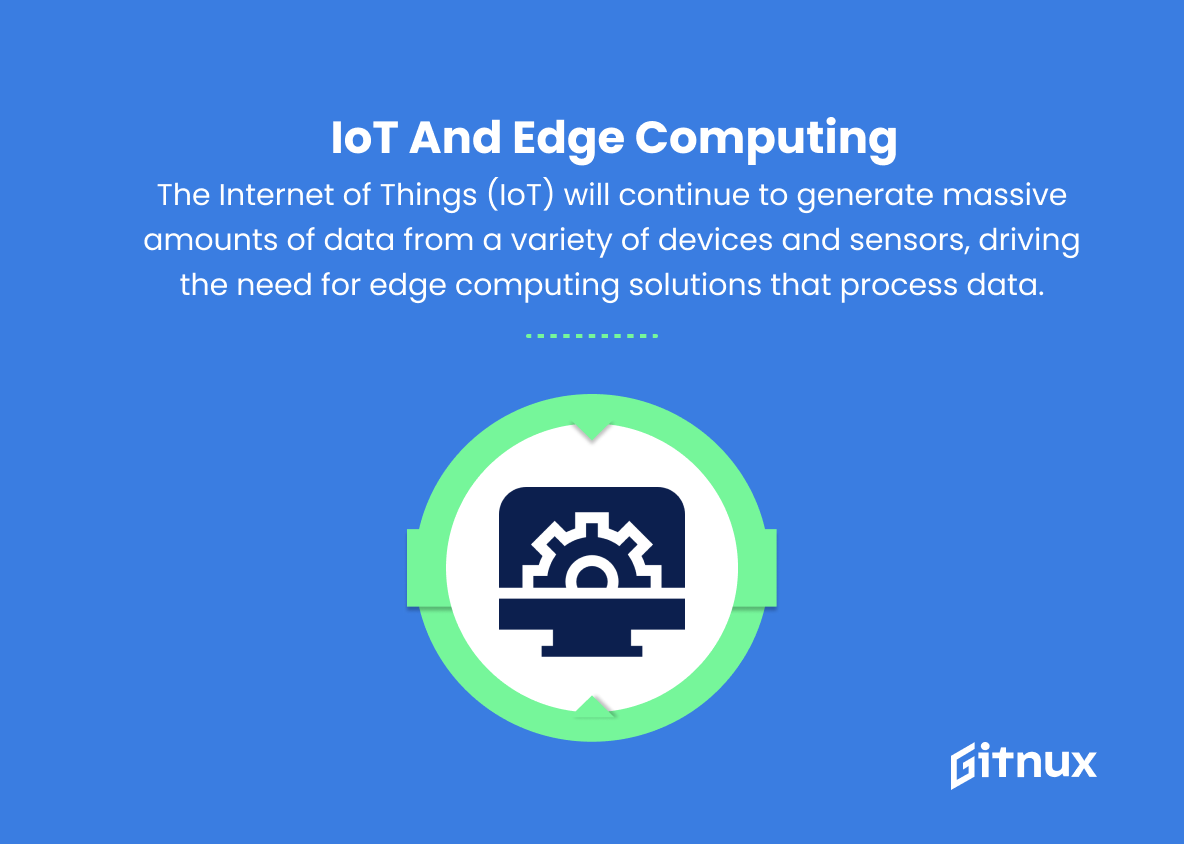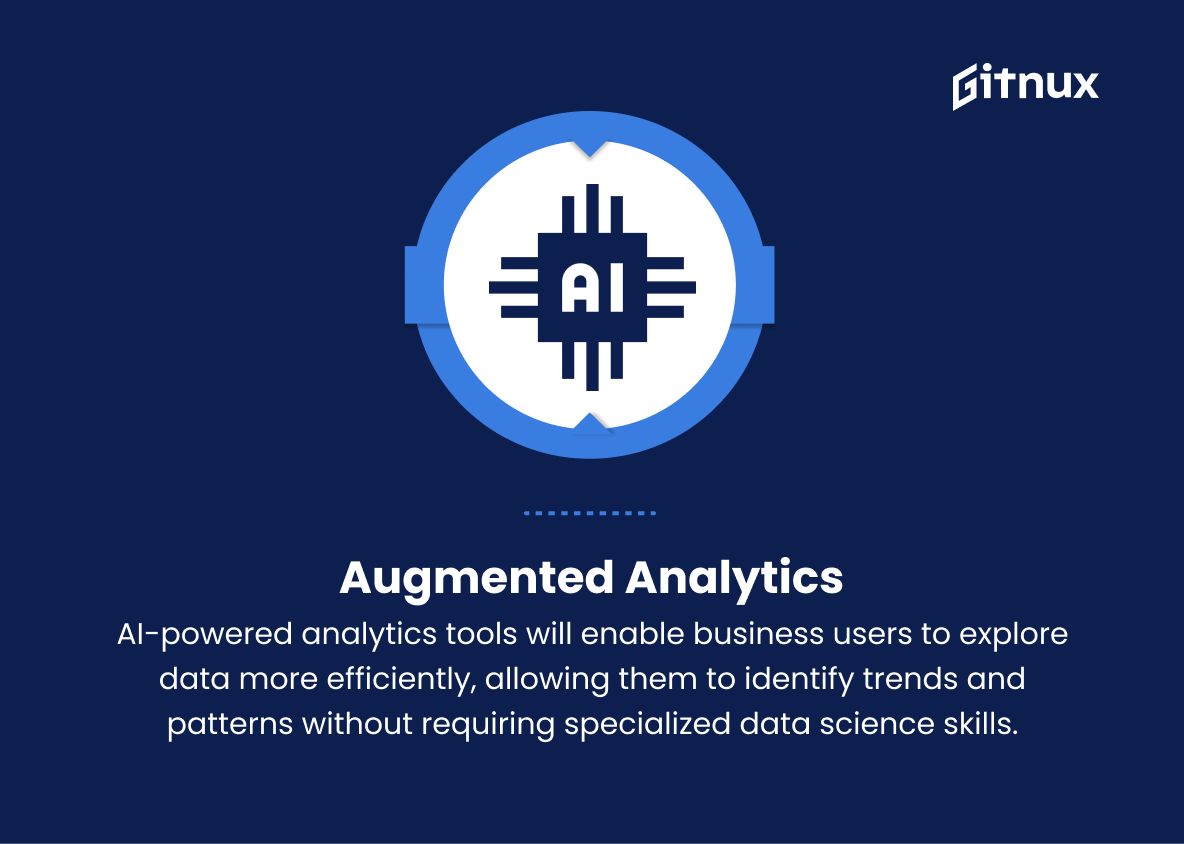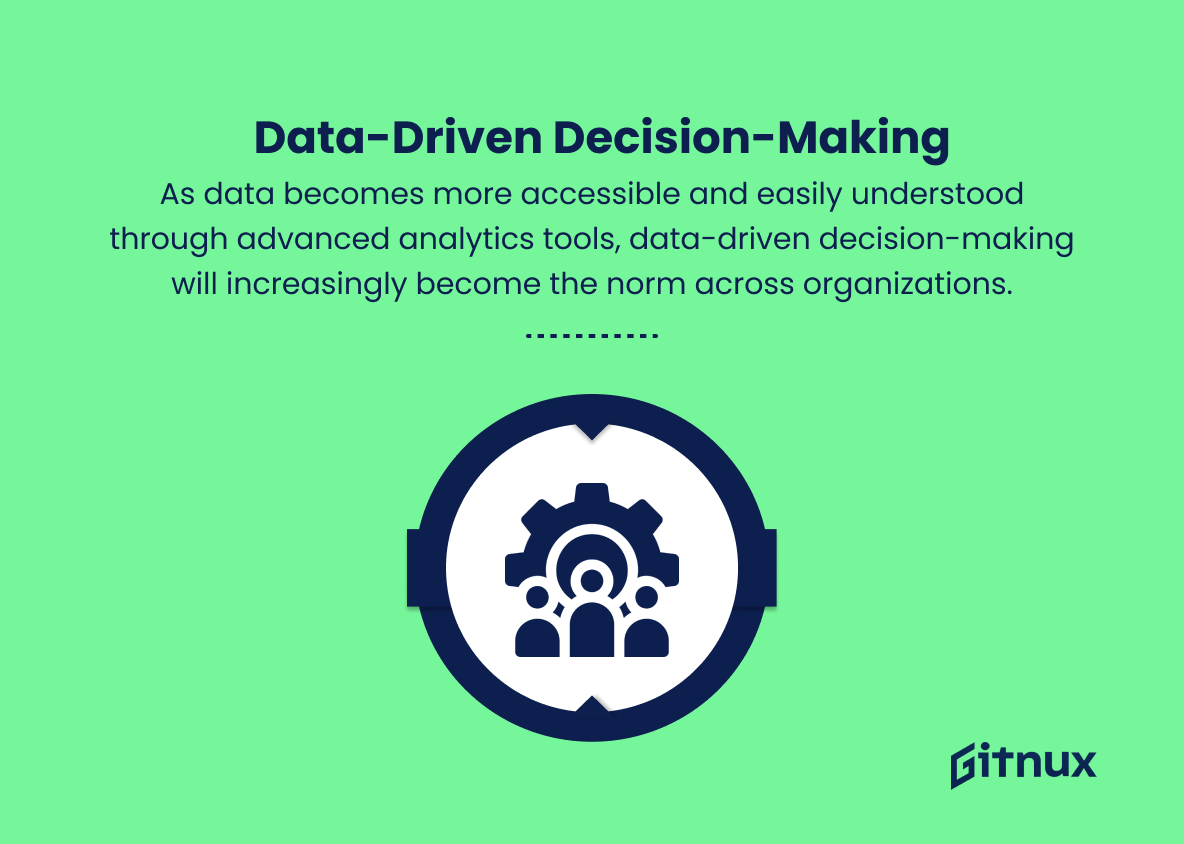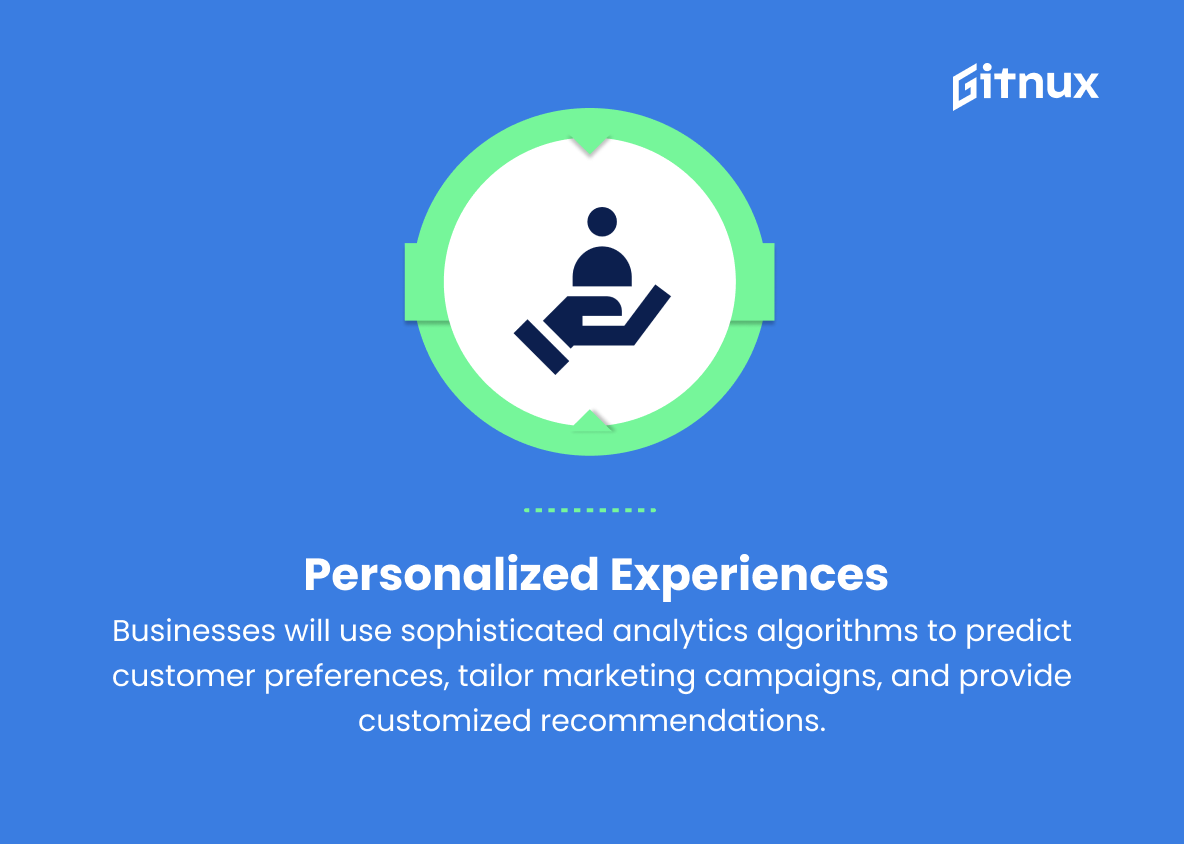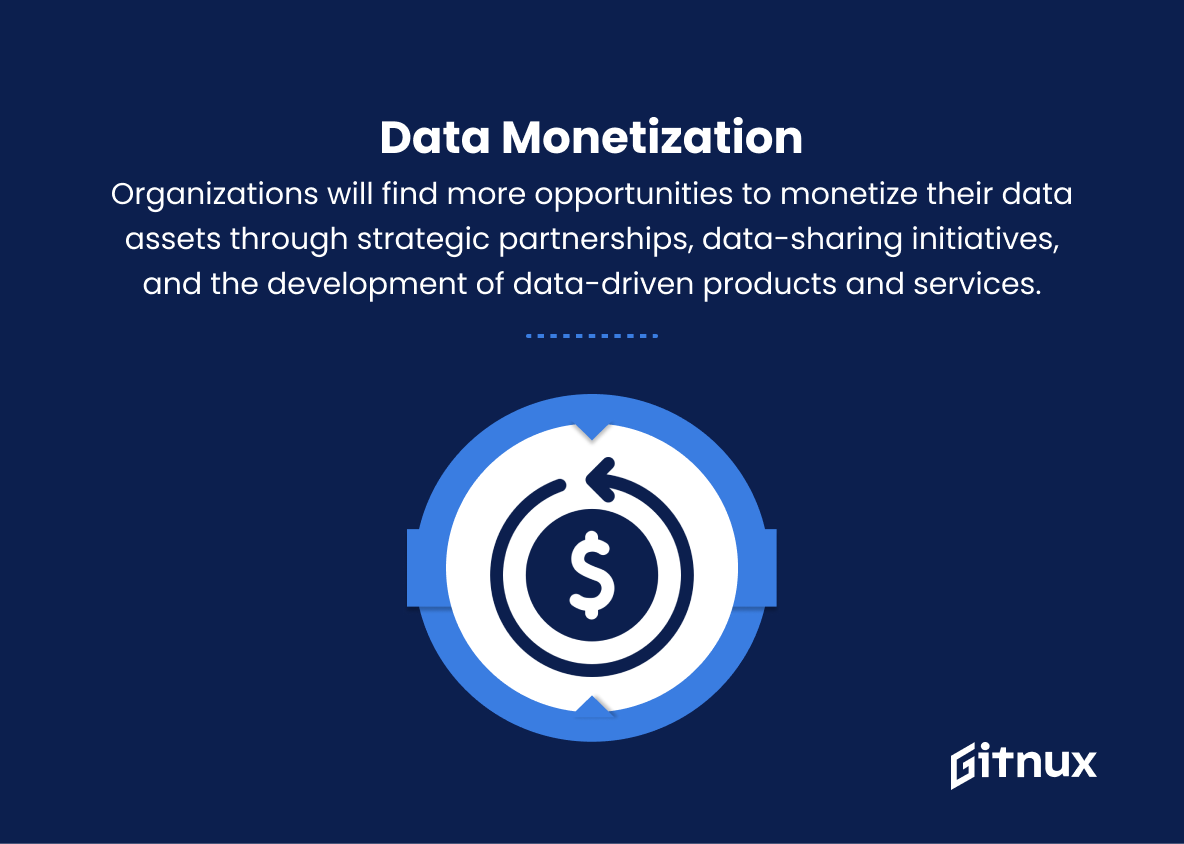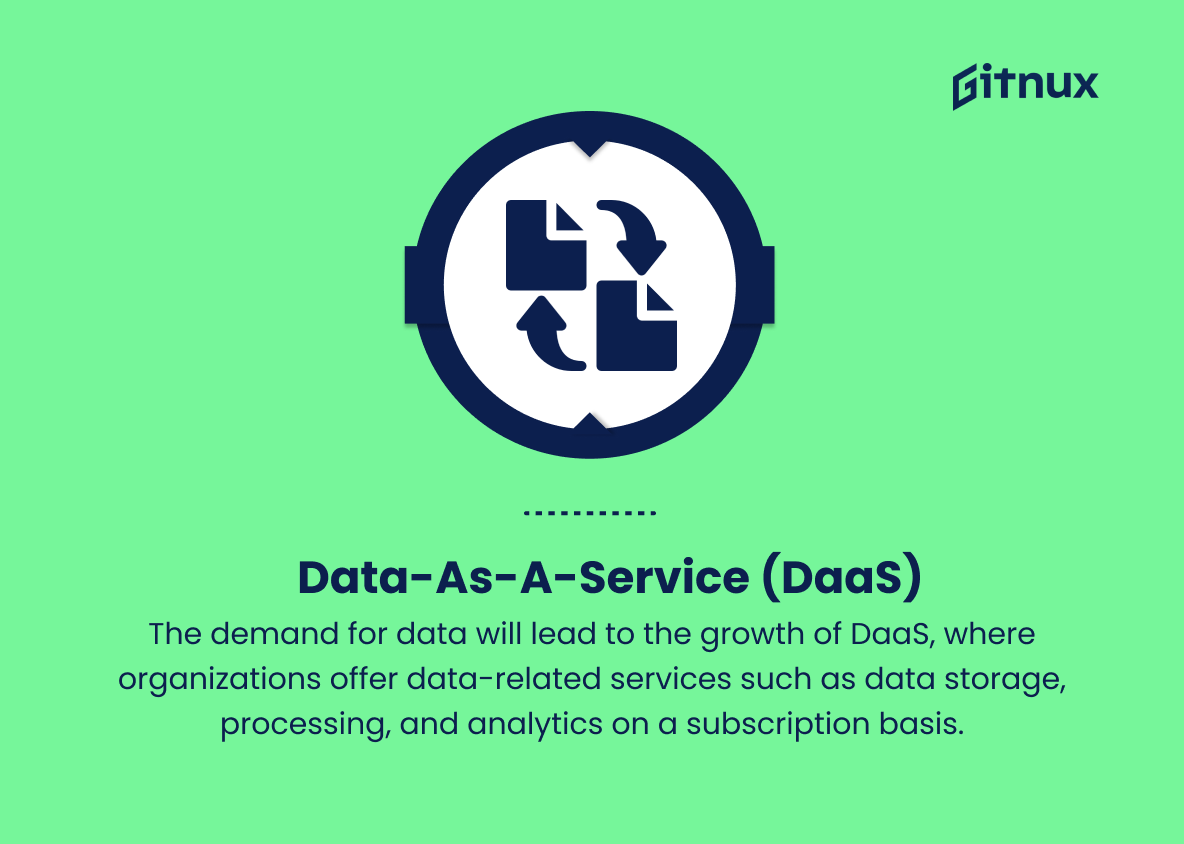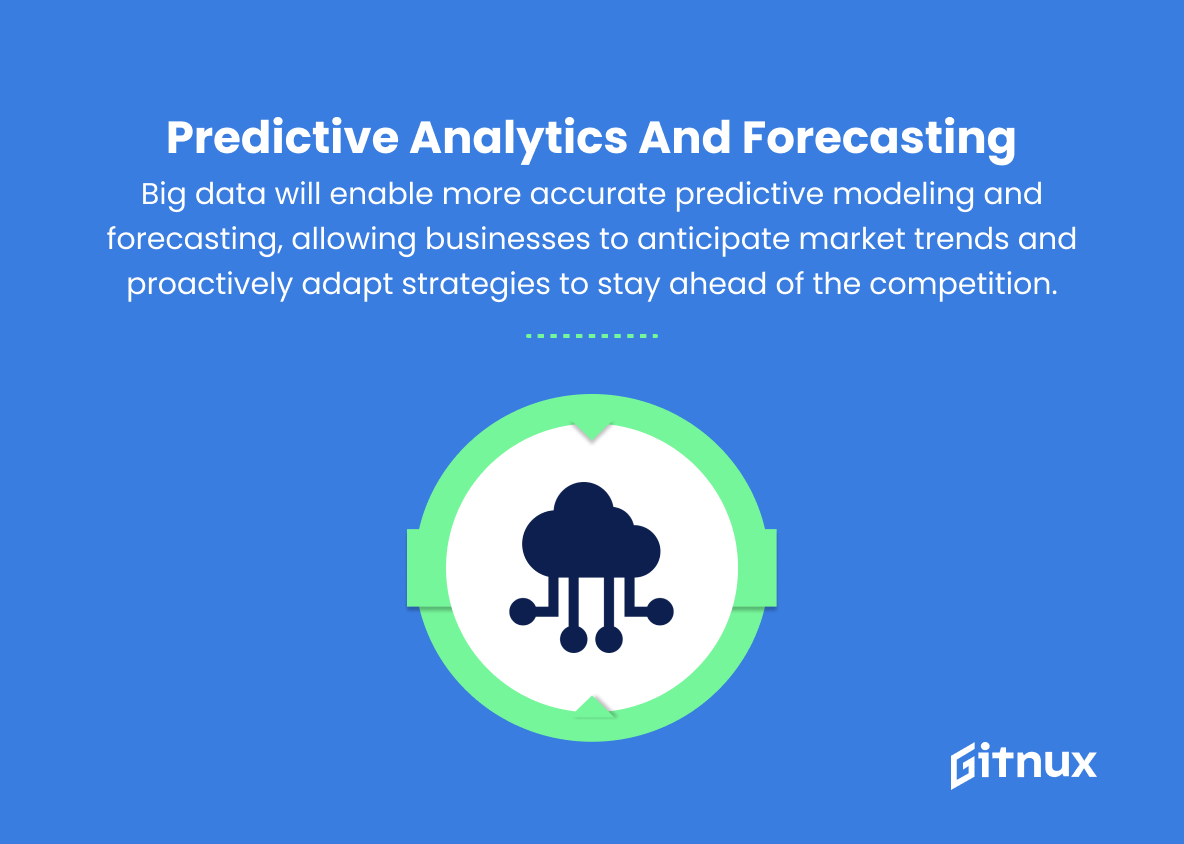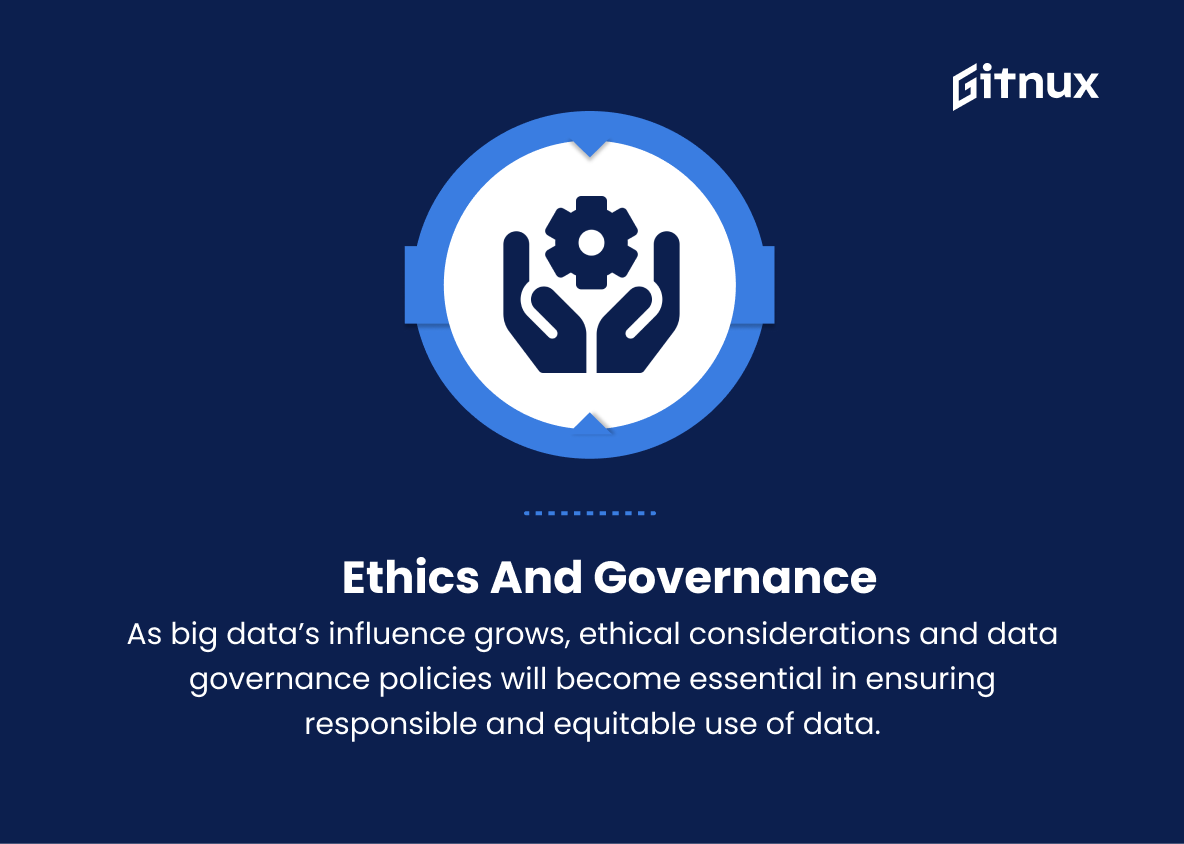As the digital revolution advances, the unprecedented growth of big data has emerged as a critical and immensely transformative force. In recent years, the collection and analysis of massive datasets have become key drivers in enhancing business operations, advancing scientific breakthroughs, and accelerating a range of innovations. This burgeoning domain brings with it myriad opportunities and challenges, shaping and redefining industries across the globe. In this thought-provoking blog post, we delve into the future trends of big data to uncover the dynamics at play, explore the ramifications for various sectors, and offer valuable insights to businesses and policy-makers as they navigate the complex landscape of the digital age.
Top Big Data Future Trends
1. Increase in data volume
The amount of data generated daily is expected to grow exponentially, leading to the need for more efficient and scalable data processing, storage, and analysis solutions.
2. Enhanced data analytics
Advanced data analytics techniques like artificial intelligence (AI) and machine learning (ML) will become more prevalent, enabling organizations to extract valuable insights and make better decisions.
3. Real-time data processing
As businesses require immediate access to data, real-time data processing and analytics will become increasingly critical for informing real-time decision-making and enhancing overall business performance.
4. Data privacy and security
With increased data collection and analytical capabilities, data privacy and security concerns will become more important. Companies need to implement robust data protection measures, and governments must establish appropriate regulations.
5. Data interoperability
To facilitate data sharing and integration across various industries, governments, and organizations, there will be increased focus on developing data interoperability standards and protocols.
6. IoT and edge computing
The Internet of Things (IoT) will continue to generate massive amounts of data from a variety of devices and sensors, driving the need for edge computing solutions that process data at the source, reducing latency and bandwidth requirements.
7. Augmented analytics
AI-powered analytics tools will enable business users to explore data more efficiently, allowing them to identify trends and patterns without requiring specialized data science skills.
8. Data-driven decision-making
As data becomes more accessible and easily understood through advanced analytics tools, data-driven decision-making will increasingly become the norm across organizations.
9. Personalized experiences
Businesses will continue to leverage big data to create personalized experiences for customers, using sophisticated analytics algorithms to predict customer preferences, tailor marketing campaigns, and provide customized recommendations.
10. Data monetization
Organizations will find more opportunities to monetize their data assets through strategic partnerships, data-sharing initiatives, and the development of data-driven products and services.
11. Data-as-a-Service (DaaS)
The demand for data will lead to the growth of DaaS, where organizations offer data-related services such as data storage, processing, and analytics on a subscription basis.
12. Predictive analytics and forecasting
Big data will enable more accurate predictive modeling and forecasting, allowing businesses to anticipate market trends and proactively adapt strategies to stay ahead of the competition.
13. Ethics and governance
As big data’s influence grows, ethical considerations and data governance policies will become essential in ensuring responsible and equitable use of data.
14. Quantum computing
The development of quantum computers may revolutionize big data analytics by solving complex optimization problems and performing calculations that are currently impossible using classical computing techniques.
Implications
The exponential growth in data volume will drive the need for more efficient data processing, storage, and analysis solutions. Enhanced data analytics techniques, such as AI and ML, will be integrated to enable organizations to extract valuable insights and make informed decisions. Real-time data processing and analysis will become increasingly critical in driving overall business performance and informing real-time decision-making. As data collection and analysis capabilities grow, data privacy and security will become paramount, necessitating robust data protection measures and regulations. Data interoperability will be essential in facilitating data sharing and integration across industries and organizations. IoT and edge computing will address the massive amounts of data generated by various devices and reduce latency and bandwidth requirements.
AI-powered augmented analytics tools will enable business users to explore data more efficiently and identify trends and patterns. Data-driven decision-making will become the norm across organizations, thanks to increased accessibility and advanced analytics tools. Personalized experiences will be more prevalent as businesses leverage big data to cater to customer preferences and provide tailored marketing campaigns. Data monetization, Data-as-a-Service (DaaS), and predictive analytics will unlock new opportunities for organizations to capitalize on their data assets and anticipate market trends. However, ethical considerations and data governance policies will be crucial in ensuring responsible and equitable data use.
Lastly, the development of quantum computing has the potential to revolutionize big data analytics by addressing complex optimization problems and computations that are currently unattainable with classical computing techniques.
Conclusion
In conclusion, the future of Big Data offers immense potential to revolutionize various industries and improve our understanding of the world around us. As technology continues to advance, Big Data will become increasingly ubiquitous, influencing decision-making processes, policymaking, and our daily lives. It is essential for organizations and individuals to stay informed about these trends and adapt accordingly, leveraging the power of Big Data to drive innovation and progress. By embracing these changes and focusing on ethical, secure, and responsible data practices, we can ensure that the future of Big Data benefits us all—a testament to the potential of human creativity and technological advancement in shaping a better tomorrow.
